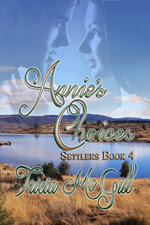According to Merriam Webster, there are over 7,000 French words today in the English language. The pronunciation and spelling might differ slightly, but they are plainly recognizable.
So many familiar words in the English language are French, like: attache, avant-garde, aviation, bachelor, ballet, bon voyage, brunette, bureau, cabaret, chauffeur, chic, cliché, cul-de-sac, debris, deja-vu, delegate, detour, dossier, elite, expatriate, façade, fiancé, film noir, gallery, gazette, heritage, homage, hotel, identity, illusion, insult, irony, liaison, literature, machine, magnificent, massage, metabolism, neutral, novel, occasion, parasol, recipient, reservoir, ricochet, rich, ridicule, risqué, sabotage, sentiment, silhouette, solicitor, souvenir, technique, uniform, variety, etc. to name a few.
Since the French and the British were enemies for centuries, why did so many French words make it into English? We all learned in school that the Normans, Vikings who had settled in Normandy, led by William the Conqueror, conquered England in 1066, by winning the battle of Hastings.
After their victory, these French speaking Normans established a new nobility in England, and used French as the official language of the English court. And for two centuries, all legal and official English court documents were written in French. The Norman nobles took control of the lands by marrying into former English nobility. In time, the two languages and the two cultures melded.
During the Crusades, Richard Lionheart battled in France, to reclaim French territories previously owned by the Normans. This conflict about territory between the English and the French led to the 100-year war (1337-1453) during which English soldiers lived and battled in France, some of them for most of their lives.
For these reasons, many medieval English words were derived from the French, and French words and expressions survived a thousand years into the English language. Words like chivalry, majesty, archer, assault, court, dungeon, enemy, felony, honor, injury, judge, justice, liberty, noble, prison, parliament, quarter, royal, robe, sir, survive, tournament, treason, uncle, among many others, are French words brought by the Normans.
As for the modern French words in the English language, many come from cooking terms. Rather than making up an English word, it’s easier to use the original French word and Anglicize it. So, in a “
restaurant” on the “
Menu” you can have your potatoes “
sauteed,” with a “
soup” and a “
roux,” eat an “
omelet” a “
salad” or “
escargots” which are the most common variety of snails. But snails sound slimy, while “escargots” sound like a culinary delight.
A “cuisine,” in French, refers to a kitchen. By extension it also means what you cook in it. “Four,” for a French person has nothing to do with numbers. It’s just a baking oven.
When I first came to America, my husband asked me if I wanted my pie “a la mode.” When I asked him what it meant, he looked flabbergasted that I didn’t understand his French. You see, “a la mode” only means “in fashion,” which is nonspecific and doesn’t relate to pie, or, as I quickly discovered, vanilla ice cream. See, the French do not mix pie with ice cream and would consider this a “faux pas.” I quickly corrected my preconceptions in the matter. Since then, I always eat my pie “a la mode.”
I also wasn’t familiar with French fries, as there is nothing French about them. Fries were invented in Belgium, where half of the population also speaks French. Maybe that’s what created the confusion. But the French simply call fries “frites” or “pommes frites” as potatoes are “pommes de terre,” which translates as apples of the earth.
Somehow, because the medieval English nobles spoke French, the French word tends to sound more luxurious. A “mansion” a “manor” or a “chateau” sound like places where upper nobility “resides.” That’s probably why Cadillac calls some of their models “deluxe.” French makes it sound more expensive.
Another French import is the modest “beret.” It was a traditional civilian cap for centuries, favored by the Basques, long before it was adopted by French Special forces in the 20th century. Shortly after, many other countries adopted the beret as military attire.
“Cadet” in French means “second son.” In the old days, to avoid dividing the lands, only the oldest son inherited the charge and the fortune of his father. So, the second son had to find a job, and for noble families, short of buying a bishopric, only a military position would do. It’s interesting to note that the American word has evolved to mean a student in a military or law enforcement academy… that they are no longer second sons, and some cadets are now women. Yay!
Once in a while, the French word has come to mean something else in the English language, just enough to confuse a native French speaker. “Madame,” for example, is a mark of respect in France. But when you speak of a Madame in the US, it’s usually the woman in charge of a house of ill repute. Same word, very different meaning.
When I first saw a jar of “Marmite” on the shelf at AJ’s I wondered what it could be. Given that a marmite is simply a cooking pot in French. It didn’t tell me what was in it. After tasting it, I could only assume that it was made of the burned residue in old cooking pots, to give some taste to bland English food. In truth, it’s a condiment made from yeast residue in beer vats.





































































